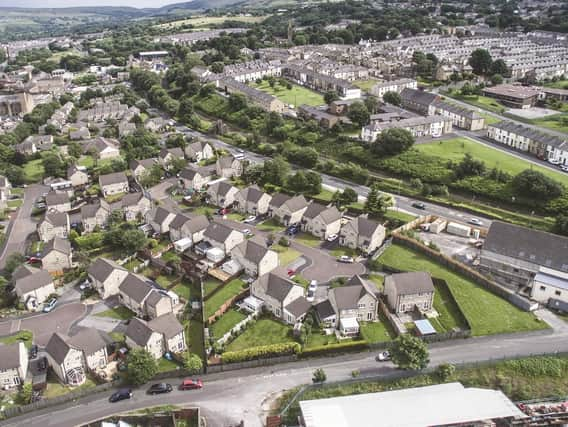Delays in Burnley housing benefit claims could cause homelessness


Charity Turn2Us claims that new housing benefit applicants in Burnley are having to wait more than two weeks for their claims to be processed, beyond the legally advised response time, although this has been disputed by Burnley Borough Council, which administers the payments.
Between April 2017 and March 2018, new claimants waited on average 17 days before their application was completed, according to data from the Department for Work and Pensions. That’s below the British average of 22 days, which includes weekends.
Advertisement
Hide AdAdvertisement
Hide AdHowever, Burnley Council said that the figures are misleading and added that it deals with applications within six days when it has received all relevant information. It said it was actually performing better than the national average.The Turn2Us charity, which helps people with financial hardship gain access to welfare benefits, said delays mean people can be threatened with eviction and face homelessness.
Pritie Billimoria, head of communications, said: “Housing benefit is not a luxury people can afford to wait for.“It is not good enough that the average wait is almost twice as long as the legal requirement and with the minimum wait for Universal Credit at 35 days, people are simply being dragged into a waiting game that they cannot afford.“At best, these delays and long waiting times are leaving people on the brink of losing the roof over their head and at worst are pushing people into homelessness.”Councils are legally required to respond within two weeks, or as soon as is practical.
A spokesman for Burnley Council said: "There is a legal requirement to make a decision within 14 days of receiving all relevant information relating to the claim. The average 17 day period it took Burnley Council to process the claims within the 12 month period was from receipt of the claim, rather than from receipt of all relevant information.
"From receipt of the claim we would need to request further information and it would depend on how long it would take for the claimant to respond to the council’s request. The timing for 14 days only commences once all relevant information relating to the claim are received.
Advertisement
Hide AdAdvertisement
Hide Ad"The council meets its legal obligation of the 14 day requirement once the information has been received. In reality, our performance last financial year was 5.68 days as compared to a target of 9 days which we set.
"Additionally, our overall 17 days is lower than the 22 day British average."
According to the figures, Burnley Council processed 1,888 new cases over the 12 month period.
In total there were 6,623 housing benefit claimants in Burnley in February 2018, which is the latest publicly available data. During the previous year applicants had to wait longer with an average delay of 18 days.
Advertisement
Hide AdAdvertisement
Hide AdResidents are eligible for housing benefit if they rent, are on a low income or other benefits, and if their savings are below £16,000.The amount applicants receive differs depending on whether they rent from the council, or privately, their salary and whether they have any spare rooms.Burnley was quicker at dealing with current claimants who had changed their living circumstances.Those applications took on average just four days to complete.A DwP spokeswoman said: “We spend around £23 billion a year on housing benefit - more than any other OECD country as a proportion of GDP.“We work directly with each local authority to monitor housing benefit performance and this includes the speed of processing which has remained stable over a number of years.”The Government has rolled out Universal Credit in Burnley, which aims to replace legacy benefits such as housing benefit, Jobseeker’s Allowance and child tax credits. However some claimants still receive the old housing benefit payments, who are referred to in this data set.